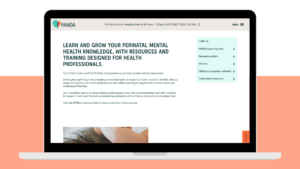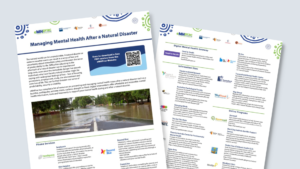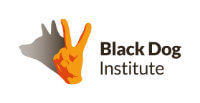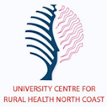Sign up below to receive monthly eMHPrac newsletters and updates about the latest digital mental health news, events, and resources.

International Women’s Day was celebrated in March, calling for a gender equal world that is free of bias, stereotypes and discrimination. There is evidence of gender bias in the field of mental health. Gender issues might contribute to the development of mental health conditions, present diagnostic considerations, and affect people’s attitudes towards seeking treatment. This edition focuses on digital resources for people who might be facing gender stereotypes or bias when seeking help for their mental health. Also in this edition, we feature the new PANDA website for perinatal anxiety and depression, introduce eMHPrac’s latest factsheet on Managing Mental Health After a Natural Disaster, and highlight THIS WAY UP’s four-session Mindfulness Program.
In this edition:
- PANDA’s New Website
- Digital Mental Health Services that Address Gender Bias
- New eMHPrac Resource! – Managing Mental Health After a Natural Disaster
- See the eMHPrac team at these upcoming conferences
- Read the latest dMH research articles
- This month’s featured service: THIS WAY UP: Mindfulness Program
PANDA’s New Website

PANDA is a national specialist perinatal mental health telephone counselling service, supporting families during pregnancy or after childbirth, working to reduce stigma around perinatal anxiety and depression, and providing education services to health professionals and the wider community.
In March, PANDA (Perinatal Anxiety and Depression Australia) launched their new website to improve access to digital perinatal mental health information for families and health professionals. The website is a valuable resource to compliment PANDAs free National Perinatal Mental Health Helpline which offers counselling and pathway navigation to families.
The new website features a dedicated learning space for health professionals and community, including:
- Free online courses
- Access to downloadable resources
- Access to support information translated into 40 languages
- Evidence based articles
- Information about referring to PANDA
- Skills and support to talk about perinatal mental health and encourage disclosure
The new website is a dedicated hub of information and practical support for those working in the perinatal period and supplements PANDAs secondary consultation service and referral service for health professionals.
Digital Mental Health Services that Address Gender-Related Bias

Despite significant advancements in women’s rights across many cultures, gender issues and inequality might be considered one lens through which some environmental and lifestyle stressors can be viewed. These then become important considerations for mental health at a policy and individual level.
Furthermore, mental health problems might be experienced differently and present differently across genders. A well-documented gender difference in mental health conditions is the higher rate of eating disorders in women compared to men. There is evidence that this can lead to a gender bias amongst health professionals, leading to some conditions potentially being underdiagnosed or overlooked. Additionally, gender bias can impact people’s attitudes towards seeking help for these conditions.
Examples of resources addressing some of the gender biases in mental health and neurodivergent conditions are listed below:
Domestic, Sexual and Family Violence Against Women
Gender inequality might still be one social issue behind the higher rates of sexual abuse and domestic violence experienced by women.
1800RESPECT
24-hour, information, counselling and support service for people impacted by sexual assault, domestic or family violence and abuse.
1800 737 732
The Line
Website with tips and articles for young men aged 14+ about healthy and respectful relationships.
Autism in Girls and Women
The neurodivergent condition, autism, is more frequently diagnosed by mental health professionals in boys and men than in women and girls. There is some emerging evidence that this condition might be much more equally prevalent across genders.
Autism Awareness Australia
Information on identifying autism in girls and women and links to external resources and support.
https://www.autismawareness.com.au/understanding-autism/women-girls
Domestic, Family and Sexual Violence Against Men and Boys
While domestic, family and sexual violence might more commonly affect women, men and boys still face these issues too. This can leave men less likely to seek help.
What’s OK at Home?
Information website for 10-to-17 year old’s and their carers to identify domestic, family, or sexual violence, support safety planning, and promote help-seeking.
Mensline
Phone and online counselling for men with relationship issues, with information website on identifying an abusive or violent relationship, how to keep safe, and where to get help.
https://mensline.org.au/family-violence/experiencing-a-violent-or-abusive-relationship/
1300 78 99 78
Eating Disorders in Boys and Men
Typically viewed as a women’s condition, eating disorders are becoming more common amongst men. The different social and environmental context for boys and men are an important consideration of treatment.
Butterfly Foundation
Personal stories of boys and men with eating disorders, body image program for adolescent young men, coping tools, referral, national phone helpline, email support and webchat.
https://butterfly.org.au/eating-disorders/who-does-it-affect/males/
1800 33 4673 (8am-midnight, AEST, 7 days a week)
support@thebutterflyfoundation.org.au
National Eating Disorders Collaboration
Factsheet on eating disorders in men and gender considerations in research and treatment.
https://www.nedc.com.au/assets/Factsheets/NEDC-Fact-Sheet-Eating-Disorders-in-Males.pdf
Perinatal Depression or Anxiety in Men
While approximately 1 in 10 fathers might experience perinatal depression or anxiety, fathers are less likely to seek help than other parents. Health care professionals are often less likely to consider that a father needs mental health support during the perinatal period.
Beyond Blue – Dadvice
Website with tips for supporting new dads and their families.
https://healthyfamilies.beyondblue.org.au/pregnancy-and-new-parents/dadvice-for-new-dads
PANDA – Support for Dads
National helpline for new parents with website on taking care of your mental health as a father.
https://panda.org.au/get-support/support-dads
1300 726 30 (Mon to Fri, 9am-7:30pm AEST/AEDT)
New eMHPrac Resource!
Managing Mental Health After a Natural Disaster

Nature can be unpredictable, and a natural disaster or extreme weather event can result in a sense of fear, uncertainty, loss and threaten the sense of predictability in life. Adjusting to the aftermath of a natural disaster can be very difficult and experienced long after the immediate danger has passed.
Many Australians are grappling first-hand with the impacts of more severe weather patterns right now, and digital interventions offer affordable and accessible mental health information, tools and treatments.
eMHPrac has compiled a list of resources in this brand new factsheet, providing brief information about how digital mental health resources can help support people after a natural disaster, such as a bushfire, earthquake, extreme storm, cyclone, drought of flood. It suggests a range of Australian evidence-based, free and low cost digital mental health resources that can help people find ways to take care of their mental health, learn healthy ways to cope, understand when to seek further assistance, or provide information on how to support children and young people through a natural disaster.
Feel free to share and distribute widely!

Catch us at these upcoming conferences

Child and Adolescent Mental Health Conference
28 – 30 March 2022, Gold Coast and Online
The Child and Adolescent Mental health Conference is designed to provide practical skills, relevant information, personal insight, and strategies for professionals committed to the mental health and wellbeing of young people, supporting them throughout crucial development stages of life. The conference include live presentations, practical skills workshops, networking opportunities, and more. This year the theme is ‘Listen, Learn and Co-Design: Establishing Partnerships with Children, Young People and Families’.
eMHPrac Director Heidi Sturk will be presenting on utilising digital mental health for prevention and early intervention. You can also speak to the eMHPrac team at our trade booth, online or in person.
To register for the conference or view the program, click the link below:
Equally Well Symposium
12 – 13 April 2022, Gold Coast and Online
The Equally Well Symposium brings together experts from the United Kingdom, New Zealand, and Australia to share innovative practice and developments aimed to improve the physical health and wellbeing of people living with mental illness. Over two days participants will be able to view papers and attend presentations on a variety of topics.
Catch a presentation by WellMob Training Development Officer Sharnia Roberts and eMHPrac Director Heidi Sturk on WellMob: A Social and Emotional Wellbeing Online Resource for Indigenous Communities.
To register for the conference or view the program, click the link below:
On our reading radar…
Suicide after contact with a national digital mental health service
Nielssen O, Staples L G, Ryan K, Karin E, Kayrouz R, Dear B F, Cross S, Titov N. Suicide after contact with a national digital mental health service. Internet Interventions 2022;28, 100516, ISSN 2214-7829. https://doi.org/10.1016/j.invent.2022.100516.
“The safety of mental health care provided remotely via the internet, in particular, the probability of suicide after contact, is not known.
An observational cohort study of patients registered with the MindSpot Clinic an Australian national digital mental health service (DMHS), linked to the National Death Index. Measures included demographics information, the nature of contact, duration between last contact and death, scores on measures of psychological distress (K-10), depression (PHQ-9) and anxiety (GAD-7), and responses to questions about suicidal thoughts or plans for patients who died by suicide within two years of last contact with the service.
Sixty-four (0.11%) of 59,033 patients registered with the MindSpot Clinic between 1 January 2013 and 31 December 2016 died from suicide within two years of last contact. The mean time between last contact and death was 344 days. Fourteen patients died within 90 days of last contact, and 4 of 285 who were urgently referred for crisis service intervention at the time of contact or soon afterwards died within 2 years. Suicidal thoughts ()%: 2.59), a suicide plan (OR: 10.8), and a score of “3” to item 9 of the PHQ9 (OR: 16.4) were significantly associated with subsequent suicide. Patients who died by suicide were more likely to be male (OR 3.2), middle-aged (35-45; OR 2.3), separated or divorced (OR:3.1), unemployed (OR:3.1) or receiving disability benefits (OR: 5.1). Enrolling in an online treatment course was associated with reduced risk (OR: 0.38).
Although DMHS provide services to patients with severe symptoms of depression, only a small portion died by suicide, and only a small number of those referred for urgent care, which suggests that the safety protocols of the clinic are relatively effective.”
Mahoney A, Li I, Haskelberg H, Millard M, Newby J M. The uptake and effectiveness of online cognitive behaviour therapy for symptoms of anxiety and depression during COVID-19. Journal of Affective Disorders 2021;292 (197-203), ISSN 0165-0327. https://doi.org/10.1016/j.jad.2021.05.116.
“The mental health impacts of COVID-19 have been considerable with many individuals experiencing significant anxiety and depression. Online cognitive behavioural therapy (iCBT) programs provide scalable access to psychological interventions, however, the effectiveness of these programs during the pandemic has not been investigated. This study examined the uptake and effectiveness of iCBT for symptoms of anxiety and depression during the first eight months of the pandemic in Australia (March-October 2020) and compared to the 12 months prior to COVID-19/
6,132 adult commenced iCBT (5,074 during the pandemic and 1,058 in the year before) and completed measures of anxiety and depression symptoms severity, and psychological distress pre- and post-treatment.
In the COVID-19 period, we observed a 504% increase in the number of monthly course registrations compared to the year prior (with a peak increase of 1,138% between April and June 2020). Baseline anxiety and depression symptoms severity were similar for the COVID and pre-COVID groups. Prior to and during the pandemic, the iCBT course was associated with large effect size reductions in anxiety (g = 0.94-1.18) and depression (g = 0.92-1.12) symptom severity, as well as psychological distress (g = 1.08-1.35).
Lack of control and long-term follow-up, as well as lack of detailed information about course users (e.g., health status and life context).
Results indicate the considerable increase in demand for psychological support during the COVID-19 pandemic in Australia and demonstrate the effectiveness and scalability of iCBT for symptoms of anxiety and depression.”
This edition’s featured service…

THIS WAY UP: Mindfulness Program
A self-help or clinician-assisted program teaching simple mindfulness strategies for managing stress and boosting wellbeing.
About THIS WAY UP: Mindfulness Program
THIS WAY UP is an Australian organisation providing online treatment, education, and research in the realm of mental health. They offer a range of suite and low cost online and app CBT programs for a range of mental health and wellbeing issues including tools to help people manage anxiety, depression, chronic conditions and more.
The Mindfulness Program is a 4-lesson program designed to introduce participants to the principles, practices, and techniques of mindfulness and how to use mindfulness strategies to tackle stress and improve general levels of wellbeing. Throughout the program participants follow an illustrated story of ‘Liz’ and ‘Rob’ as they learn how to use mindfulness skills to tackle stress and start to feel more relaxed and at ease in their daily life. Each lesson focuses on a mindfulness skill for participants to practice to build by their levels of mindfulness and wellbeing. Once completing a lesson participants spend 5 days practicing the new skill before moving on to the next lesson. The lesson focuses are:
- Lesson 1: Becoming aware – what is mindfulness?
- Lesson 2: Learning about your mind and common difficulties with mindfulness
- Lesson 3: Listening to your body and recognizing roadblocks
- Lesson 4: Mindfulness in daily life
In addition to lessons, the program provides a range of materials to help support participants including:
- Workbooks: exercises designed to help participants tackle their symptoms
- Action Plans: step-by-step activates to help participants put new skills into practice
- Extra Resources: Tools to help participants overcome common challenges
- Alerts and Reminders: reminder emails and texts to help participants stay on track
- Process Tracking: questionnaires to help participants monitor their wellbeing
Who is THIS WAY UP: Mindfulness Program for?
The THIS WAY Up Mindfulness Program is designed to help Australians aged over 18 years seeking to learn foundational mindfulness skills in order to manage normal life stresses and improve the way they feel.
The program may be suitable if you:
- Tend to feel constantly busy, scattered, and rushed throughout your day
- Often catch yourself doing things on “auto-pilot” without paying attention
- Tend to be forgetful and find it hard to relax or feel at ease
- Seem to be stuck in the way you feel and would love to learn how to get out of this cycle
- Ready and willing to learn new skills to change the way you feel.
This program may be especially helpful for people know to mindfulness and would like to learn simple ways of using mindfulness strategies in their daily life.
Is there a cost to use THIS WAY UP: Mindfulness Program?
There is no cost to enrol in the self-help or the clinician-supervised versions of this program, however the supervised option does require a prescription and must be completed with the participants clinician.
How to access THIS WAY UP: Mindfulness Program
All of THIS WAY UP’s programs are available to access through their website at https://thiswayup.org.au/programs/
To enrol in the program as self-help participants must register with their given name, email address, age, and gender. The program content is available for 12 months following completion of the program.
To enrol in the program with clinician assistance participants must speak with their regular clinician (eg. GP, psychologist, or other health professional) and see if they can prescribe the program and monitor the participant throughout the online treatment. THIS WAY UP provide a downloadable Clinician Letter to take to their appointment. The program content is available for 12 months following completion of the program.
Find out more about the THIS WAY UP Mindfulness Program and how to get started here: https://thiswayup.org.au/programs/mindfulness-program/





